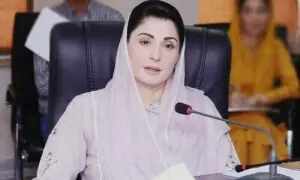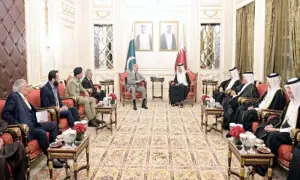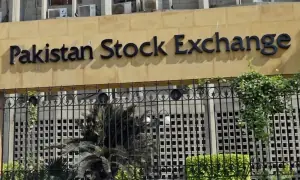Pakistani budget caught between IMF expectations and election
3 min readPakistan’s government will hope to find a balance between reforms to satisfy the International Monetary Fund and measures to win over voters in an imminent election in its budget for the 2023-24 fiscal year to be announced on Friday, analysts said.
Pakistan’s IMF programme runs out this month with about $2.5 billion in funds yet to be released as it struggles to strike an agreement with the lender, as it grapples with record inflation, fiscal imbalances and low reserves.
A general election is due by November, which the government will be hoping will end turmoil arising from a protest campaign former premier Imran Khan has led since he was ousted in a no-confidence vote last year.
Former finance minister Miftah Ismail said it was essential for the government to secure IMF funding so there was little chance of an expansionary budget.
“Without the IMF, it would be very difficult for Pakistan to survive the next fiscal year, so I’m sure the government will come up with a budget that is more or less in line with IMF prescriptions,” Ismail said.
A staff-level IMF agreement to release $1.1 billion of a $6.5 billion package has been delayed since November.
The funds are crucial for Pakistan to avert a balance of payments crisis, and most analysts believe that even after the expiry of the current programme, Pakistan will have to seek a bailout in the upcoming fiscal to avert defaulting on debt obligations.
Central bank reserves can cover imports for about a month.
Inflation surged to 37.97% in the country of 220 million people in May, a record for the second consecutive month and the highest rate in South Asia.
On Tuesday, the planning minister announced that budget targets for development spending would be 1,150 billion rupees ($4.02 billion) in the new fiscal year, while inflation for the year is projected at 21%.
With the general election looming, some analysts believe the government will announce vote-winning measures on Friday, even if the promises have to be scaled back later.
Fahad Rauf, head of research at the Karachi-based brokerage Ismail Iqbal Securities, said he expected a pay rise for government employees and a package for the agriculture sector, with more of a burden being piled on an already narrow tax base, and few, if any, meaningful steps to broaden it.
“Banks and taxed industries will continue to feel the heat,” Rauf said, adding that he thought a so-called super tax of 10% on more than 15 sectors would be levied again, even though the government said last year it was a one-off payment.
A year ago, the government set a total expenditure target at 9.5 trillion rupees for the 2022/23 year from 8.49 trillion rupees the year plans had to be scaled back after IMF discontent.
Rauf said he expected a repeat of that this year.
Independent economist Sakib Sherani said he too believed the budget would be full of populist pre-election measures that would be unlikely to survive the July-September quarter, given the necessity of more IMF support.
For the latest news, follow us on Twitter @Aaj_Urdu. We are also on Facebook, Instagram and YouTube.


























Comments are closed on this story.